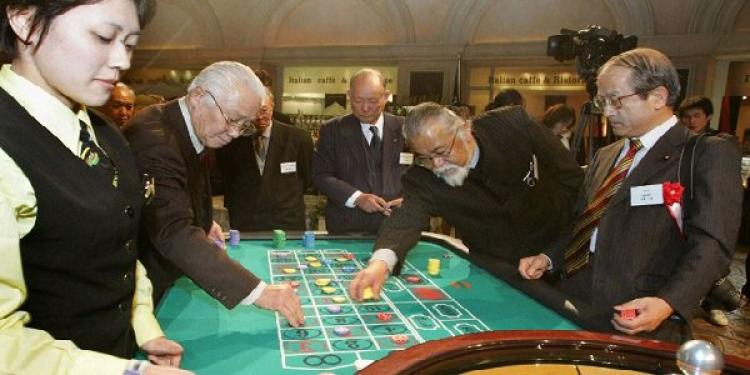Legalizing Integrated Gambling Resorts – Japan’s Best Kept Secret
Posted: December 12, 2014
Updated: December 12, 2014

‘Abenomics’ to include integrated resorts where casinos tax revenues would plug Japan’s budget deficit.
One must admit that it was rather a bold move on the part of the Prime Minister, Shinzo Abe – The Prime Minister of Japan held a rather sudden parliamentary election in Japan on Sunday. What was rather more startling was that the voters themselves may not have been informed that they were voting for more than just economic expansion.
Also on the agenda was a bill to legalize casino in Japan, unbeknownst to the Japanese people. Now, why would Abe and other politicians hide this fact, since it seems the perfect way to get the country moving forward? Perhaps because in the past, the Japanese have not been favorable it seems, to casino gambling invading their rather unique and sheltered culture.
Abeconmics
Japanese were brought to the polls to see what they thought of the government’s monetary expansion policy, fiscal stimulus and structural reforms, or ‘Abenomics’ as it’s now called. ‘Abenomics’, named after Japan’s PM, is Japan’s solution to keep its reputation as the world’s third economic power and to dispel speculations that it has been in an economic rut for more than twenty five years.
What the Japanese voters don’t know though is that the referendum was also to decide on whether to legalize casino gambling or not in Japan. Politicians managed to keep this fact out of the Japanese gambling news but not from the many over-enthusiastic gambling operators worldwide, just waiting for such an opportunity.
• Legalizing Casinos in Japan – a taboo?
• Integrated Resorts would generate millions
• 2020 Summer Olympics in Tokyo
Abe is all in favor of legalizing gambling in Japan. He sees the implementation of the Integrated Resorts (IRs) a sure way to enhance the lagging economy. For a year now he has supported using the IRs as an economic development tool by putting it on the legislative agenda.
Las Vegas Sands and Wynn Resorts, well-known top casinos seem willing to invest up to $10 billion in building Ginza-meets-the-Strip resorts. The resort would also attract thousands of tourists, as it would be based on the Singapore model where the sites would include not only Japanese poker rooms but also
non-gambling attractions.
Economic Analysts seem to agree that legalizing gambling would have at least two or three main IRs sprouting up in principal cities like Tokyo and Osaka. Eventually IRs could spread to about 12 if the venture hits success. The casinos said that thousands of jobs would be created for each integrated resort.
The Singapore model
With the 2020 Summer Olympics coming up in Tokyo, thousands of new hotel rooms and other facilities, accommodating visitors, would be set up. Aya Kudo, Japan’s marketing specialist said that “Tokyo, one of the largest and most famous cities in the world, doesn’t have a proper convention center” for example.
Kudo was probably comparing Japan to Singapore. Singapore has the region envying its enormous convention centers. The Singapore government was able to negotiate with the casino operators when they set up the IRs to include convention centers.
Now Singapore boasts Southeast Asia’s only Universal Studios theme in one IR. In the other is ‘the world’s second biggest aquarium, museums and a host of other goodies for residents and tourists alike’.
IRs money making machines
The land-based and mobile casinos themselves would serve as the money-making machines for the economy. Japan’s gambling market would become the third largest, behind that of the US’ and Macau’s, as it would generate around $40 billion a year.

The Japanese government, hard-up for cash, would then be able to benefit from the hefty tax revenues forthcoming from the IRs. For example, even a low tax rate of 20%, behind Macau’s 39%, would still spawn $4 billion, which would significantly lower the Japanese budget deficit.
Shouldn’t the Japanese be let in on the secret?
So why has it been kept a secret from the Japanese people in the referendum? Spectrum Asia’s CEO, Paul Bromberg, explains that “Although it may seem obvious, at least to an outsider, from an economic standpoint that they should legalize casinos now as it would be beneficial to the country in terms of creating tax revenue, jobs, tourism, etc., it’s not so obvious to many Japanese people”.
Perhaps the Japanese would be more receptive, if they had been properly informed. For it seems that the
spate of opposition is due to the fact that Japanese have not been really told of the economic progress that would be made if casinos operators, regulated by appropriate gambling laws, were allowed to come in and build those IRs.












